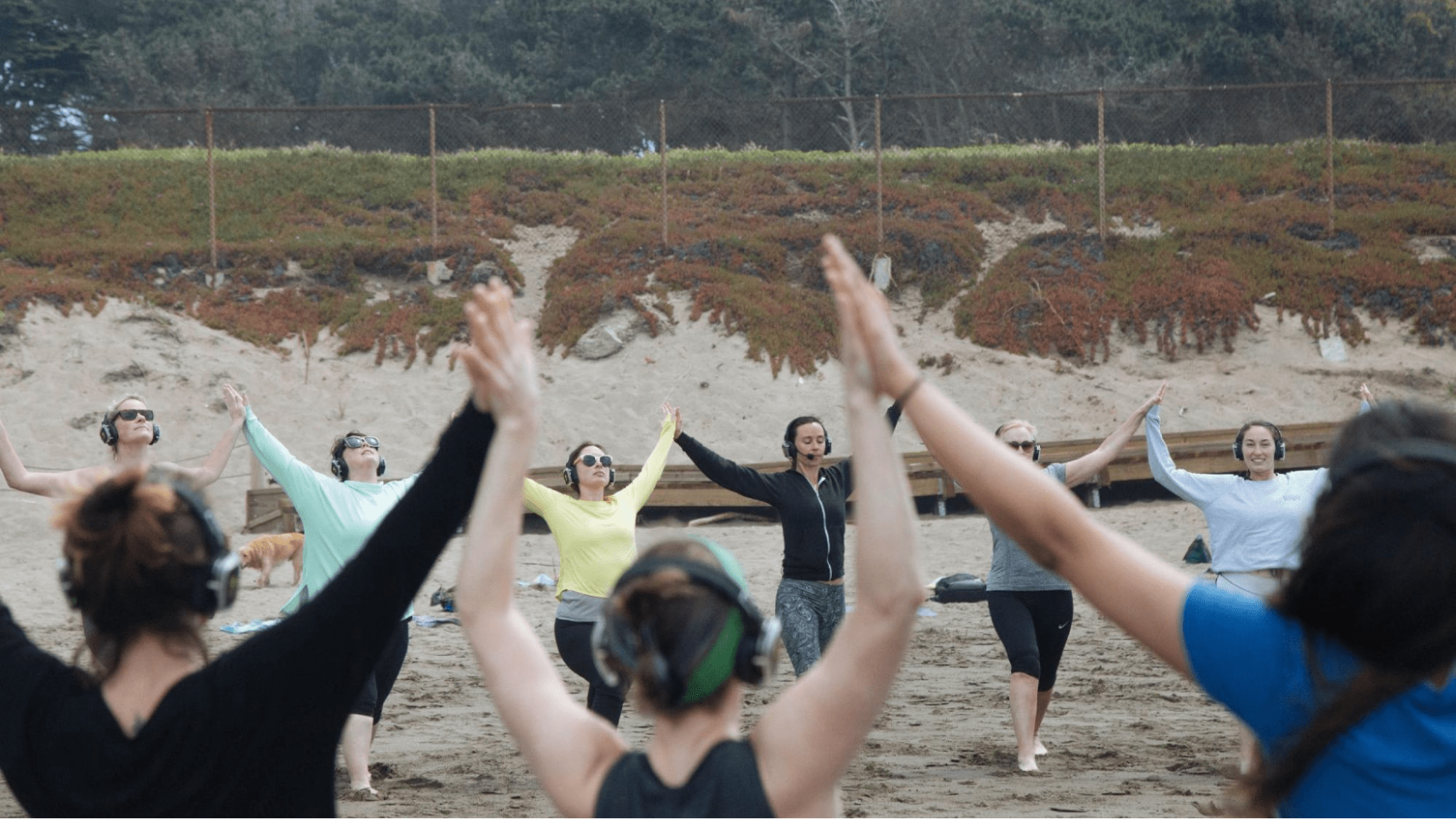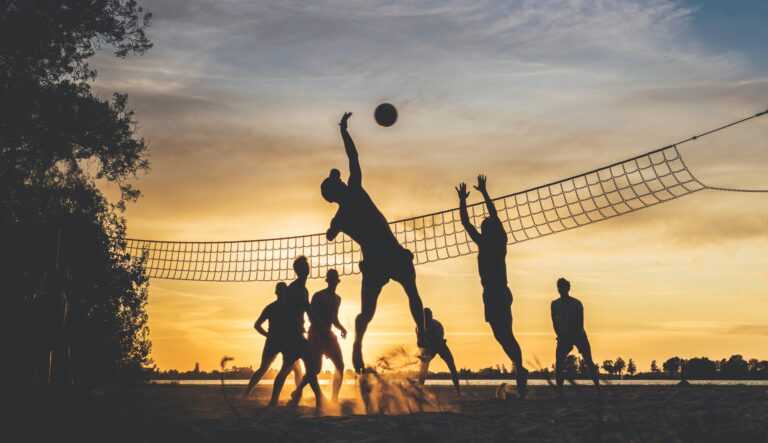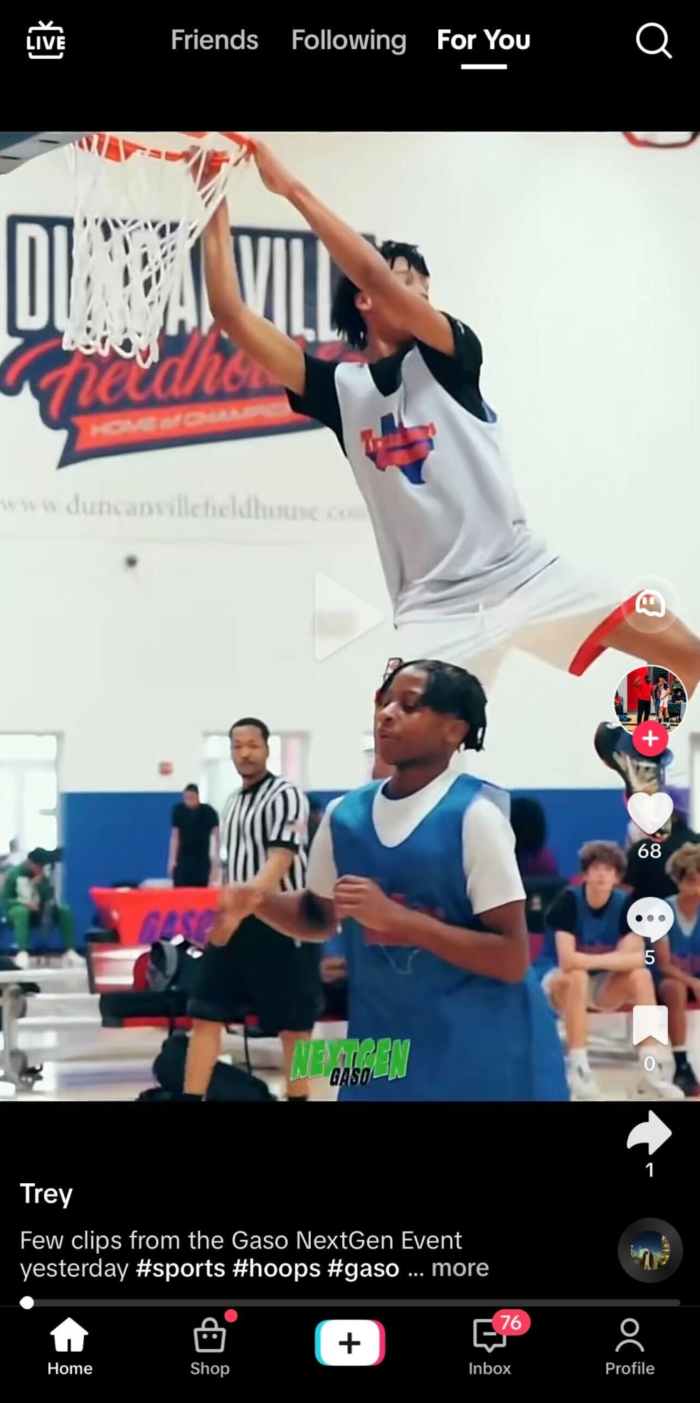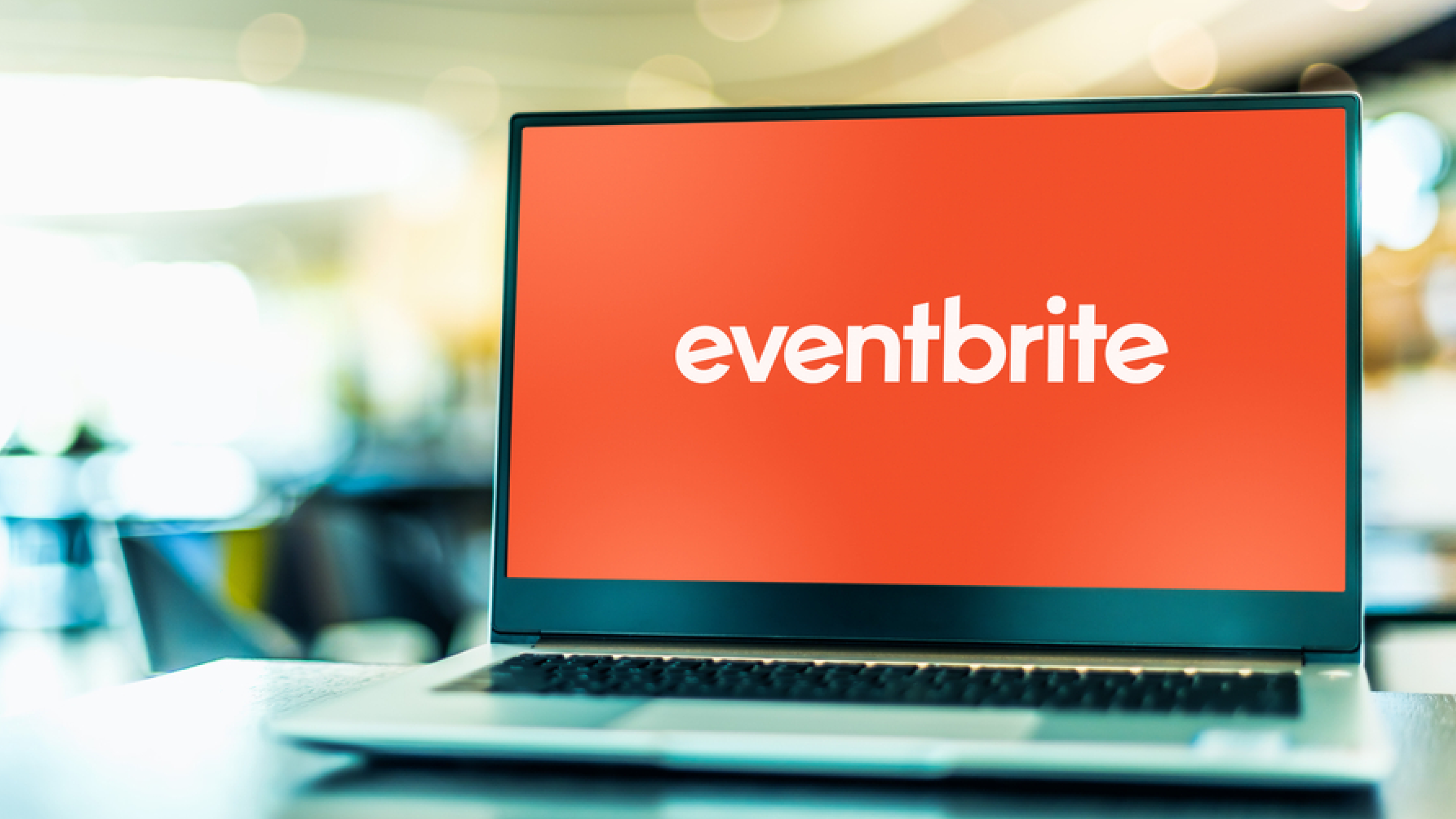Global sports revenue continues to grow, with Sports leaders predicting 7.3% market growth over the next 3-5 years, and 85% of experts predict double-digit growth in women’s sports revenues between 2024 and 2027.
As an event organiser, how can you tap into this massive market to improve your events?
That’s where we come in.
Whether you’re organising a 5K run, an obstacle course race or a local football tournament, you can take advantage of enthusiasm to reach as wide an audience as possible for your event.
At Eventbrite, thousands of successful creators host live events all over the world, and we’ve learned a lot from our talented organisers. So, today, we’ll share sporting event promotion ideas to drive fan engagement and boost attendance. We’ve also included some strategies to keep attendees coming back for more.
Ready to level up your sports event marketing?
Table of Contents
Understand your audience to increase sports event attendance
Sports event marketing: 11 ways to increase attendance in 2024
How to engage fans and secure repeat attendance
Creating your sports event marketing plan
Understand your audience to increase sports event attendance
To attract more people to your events and learn how to source more fans to sporting events, you first need to understand your target audience.
Focusing only on fans of that particular sport as your audience can limit your potential reach.
Try to identify unique audiences who may not be the “obvious” ones so you can expand your reach. For example, university students might be interested in rugby games for budget-friendly entertainment and cheap drinks — even if they’re not necessarily huge fans of the sport. Or perhaps families would be interested in group fitness events that provide childcare or a supervised play area.
Once you’ve identified potential audience segments, it’s time to work out what would attract them to your event? People consider several factors when scoping out events, such as:
- How fun it looks
- Where it’s located
- The date and time
- Parking convenience
- Ticket prices
- Availability (and costs) of food and drinks
By putting yourself in your audience’s shoes, you can improve your event marketing strategy. You can also spice up your events with creative event ideas that could help you stand out from the crowd.
Next, utilise the sporting event promotion ideas listed below to master your sports event marketing efforts.

Sports event marketing: 11 ways to increase attendance
1. Target fans where they spend time
Once you know the fans you’re trying to reach, think about where those people spend their time. Effective marketing for sports events can include advertisements in both physical locations and online communities/social media channels. First, identify where your target audience hangs out, then consider how you can use paid and free advertising to reach those people directly.
Online advertising provides ample opportunity for targeted ads. With Eventbrite ads, you can reach fans who are already actively looking for events in their area — Eventbrite is home to 90 million unique attendees. With social media advertising (more on this later), you can target those who have already interacted with relevant pages and content (like a local sports team).
For local events, don’t underestimate the power of more traditional physical adverts. While print advertising can be trickier to target, hanging posters in relevant places — like local pubs and community bulletin boards — often yields great results.
💡Pro Tip: Wherever possible, track the performance of your sports adverts to see what works and what doesn’t. Online advertising platforms like Meta Ads and Google Ads offer built-in analytics. For posters and TV or radio ads, you can consider using a unique event promo code to track ticket sales that originate from that particular ad.
2. Secure event sponsors
Ask any sports marketing pro in event management, and they’re likely to tell you how sponsorship benefits your events. Not only does it help lower costs and increase your event’s revenue but sponsors can also help with event promotion. Many event sponsors have their own marketing budgets, so when negotiating, discuss combining promotional efforts to increase event reach.
To land sponsors, highlight the benefits that your sponsors can enjoy in a detailed sponsorship pitch deck. Then, reach out to companies that may have a common audience or market segment — for instance, a local tutoring company or a local pizza restaurant may be interested in sponsoring a youth football tournament.
Sponsors can also be nonprofit organisations or community groups. Whenever you’re working on finding sponsors, remember that you want to create a genuine partnership between you and the sponsoring company. For the best results, make sure it’s a mutually beneficial arrangement.
💡Pro Tip: Identify companies that have already sponsored similar events. From there, craft a compelling sponsorship email to send to marketing teams at those companies. You can use LinkedIn to identify the right contacts.

3. Work around the community calendar
You’ll want to check out local community calendars to make sure you’re not competing with too many other related events. Most leagues create their own schedules, but if your event is more flexible or involves attendee participation, choose a date when the community calendar is relatively clear.
Consider scheduling your event alongside a holiday to catch people when they’re off work. And for family-friendly events, align your events with weekends and school holidays.
💡Pro Tip: When planning your event, check all the relevant calendars you know of for events in your area. You can start with local publications, then check out Eventbrite, league-specific websites, and Facebook Events.
4. Increase the value to sports fans
Who doesn’t love a bargain? Increasing the value of your event will make attendance that much more attractive. Try these effective sports marketing ideas:
- Offer (budget-friendly) food and drink. If your attendees are hungry and without options, they won’t stay long. Some venues have built-in concessions, such as food kiosks and drink stands.
If not, source outside vendors or caterers to provide food. Food trucks can also be a cost-effective solution. Drink deals can be popular, too, like the 4 Corona’s for the price of 2 deals found at BOXPARK during the recent European Championships.
- Provide coaching and trainer access. If your event is a competition or involves attendee participation, give competitors access to coaching or training specialists to bring special value.
This shows investment in and commitment to the participants by helping them improve their performance. This can lead to increased interest in sports and greater brand loyalty. - Offer multiple ticket tiers: By offering multiple types of tickets, you can reach attendees at different budget levels and boost your revenue. Consider offering VIP tickets with free drinks included or bundle admission with a basic meal for a bargain price point.
💡Pro Tip: Experiment with your ticket pricing strategy and track attendance metrics from game to game using Eventbrite Analytics to see what works and what doesn’t. If you have multiple sources of revenue beyond ticket sales (merch, refreshments, etc.), it may make sense to lower your ticket price to attract a wider audience. Just make sure to track your metrics closely.
5. Make your event listing comprehensive
Your event listing serves as a first impression of your event — it’s where people first get an idea of your event’s tone, atmosphere, and details. Make sure it’s straightforward yet comprehensive to give a clear sense of the value your attendees will see.
You can achieve this by making your event listing visually appealing; it should look attractive without being overwhelming. Use graphics to personalise it and break up the text, and include information about sponsors and other vendors that will be at the event.
💡Pro Tip: Utilise generative Artificial Intelligence (AI) to spruce up your event listing. On our platform, event organisers have access to a variety of AI-powered tools to help write their event listing, optimise social media campaigns, and even write marketing emails.

6. Give attendees a sense of ownership and community
Event creators can inspire greater loyalty and improved value by giving attendees a sense of ownership. That can mean involving them in the event, such as with competitive events like races or active events like 5K runs.
It can also mean giving them inside information, like attendance figures or the amount of money donated at a fundraiser. If your event is competitive, provide statistics indicating attendees’ performance levels to see how they compare.
Add community-building elements to your event. This could be a shout-out to fans on their birthdays or anniversaries or encouraging fans to wear team merch on game day.
💡Pro Tip: Tap into existing communities in your area to sell group ticket packages at a discount. Many groups — like churches or large businesses — may be interested in sending their members to group activities. By proactively reaching out with a compelling discount, you can potentially attract a large number of attendees from local community groups.
Enhance community engagement at your events

7. Send sports event marketing emails
Emails are an efficient way to reach a large number of people directly. Consider using email marketing tools. When event-goers register for an event, they include their email address so you can contact past event-goers about current events in line with their interests.
Additional benefits of email marketing include:
- Building excitement: An email marketing campaign is an effective way to build excitement around your event. Initiate interest with an announcement about your event and continually build upon that interest with reminders and updates about new features, participants, and more.
- Organising your contacts: Create email groups for those who’ve attended events, registered but didn’t attend, attended one event, attended multiple events, and so on. This allows you to tailor your email messages more effectively.
💡Pro Tip: Two of the most important components of a marketing email are a concise and eye-catching subject line and a clear Call-To-Action (CTA). Keep your subject line under 60 characters, and include clear CTAs within your email.
8. Highlight the health and fitness benefits
Six out of every ten attendees favour events that empower them to improve their well-being, health, and longevity. The health event segment is growing fast: attendance at health and wellness events grew by 21% globally on the Eventbrite platform between January and September 2023, compared to the same period in 2022.
To capitalise on this wellness trend, highlight the health benefits of active events you’re promoting. For example, Yoga Hero hosted a Yoga for Runners Workshop. The event’s description highlighted the ways that yoga could benefit the target audience (runners).
For events where attendees participate directly, provide activities that are accessible to a wide range of ability levels. For spectator sports, highlight that these events can help get attendees outside and inspire them to be more active.
💡Pro Tip: There’s often substantial overlap in groups interested in various active hobbies. For instance, a local yoga studio’s customer base may be interested in a 5K run. Consider partnering with local active businesses that aren’t direct competitors so they can promote each other’s offerings.
9. Use social media marketing for sports event promotion
Who doesn’t love scrolling through social media to see what their friends and colleagues have been up to? Promoting your event on social media is a great way to get your details in front of a lot of eyes. Here are some ways to achieve that:
- Create and maintain relationships with interaction. Use storytelling to draw on followers’ love of sports by highlighting participants’ achievements, finishes, medals, and trophies earned.
- Create an online community for the sport or event. Engage with your followers through comments and messages before and during events.
- Produce content related to the sport. This will interest followers without directly marketing an event. It also helps to establish your brand as an authority and minimises the sales aspect of event promotion, which creates greater authenticity.
- Partner with local fitness influencers. Social media influencers like personal trainers, runners, and coaches are experts at promotion. Ask them to give tips and advice to participants through cross-promotion with their own brands.
- Provide behind-the-scenes content. People love to see what goes on behind the scenes. Quick clips, such as team practice or warmups help build anticipation.
- Post photos and videos. Spur engagement through visual content by highlighting your participants. This helps promote your event and create interest for those who have not yet registered for your events.
- Show off on TikTok. The snack-sized format of TikTok is perfect for highlighting competitions and athletic achievements with action-oriented clips.
- Promote the goodwill activities of the event. Don’t be shy about showing your charitable side! Remind everyone about the free tickets to charity, athletes’ volunteer work, and similar activities.
- Use social media ads. If your budget allows, run targeted social ads on popular platforms like Instagram and Facebook. Target users who have expressed interest in your event type/sport or who fit your target demographics.
- Cross-promote with partners and athletes. Use your network to drive more excitement for your next event. Encourage athletes, sponsors, and other partners to share your social posts with their own followers to increase reach. You can even create social media stories on your main page, and then tag partners, athletes, and special guests.
💡Pro Tip: Draw inspiration from event social media post examples for ideas on how to structure your posts. Remember to include a mix of promotional, informational, and just plain fun content to keep your audience engaged.

10. Find community partners
Partner with local community groups and businesses to expand your reach and build connections. This could mean partnering with a new venue to expand seating capacity, securing a food vendor with a profit-sharing agreement, or even connecting with organisers of other sporting events in your area.
Such partnerships can yield results in event promotion (by cross-promoting on social media, for instance) and in actual business operations.
💡Pro Tip: Approach potential partners with an open mind — then explore how each partnership can benefit both parties. By reaching out to start a conversation, you can develop meaningful connections that may evolve into productive working relationships.
11. Run a competition or giveaway
Competitions and giveaways can be a fun way to build excitement for an event and are effective for generating FOMO (fear of missing out) if you run them during your live event. For instance, you could run a social media giveaway for free tickets to your event. This encourages fans to tag friends for extra giveaway entries to help boost engagement on your posts.
Competitions can also be used during your event, with prizes like free branded merch or ticket vouchers for a future event.
💡Pro Tip: Social media competition tools can help drive better engagement. Tools like ShortStack and Woobox are popular options that can help you customise the giveaway experience for fans and drive better engagement.

How to engage fans and secure repeat attendance
Developing repeat attendance can be the foundation for growing your events. Make sure your events inspire repeat attendance with these tips:
Improve the entertainment factor — and highlight excitement in your marketing
While your athletes catch their breath at halftime, provide entertainment, such as a musical performance, dancers, or some sort of competition open to the public to help your event stand out.
The way you design your events and entertainment can also influence your marketing strategies. It’s important to highlight the experience that attendees can expect at your event. You want to leverage the uniqueness provided by your event to market it as a once-in-a-lifetime experience attendees won’t be able to resist.
It’s best to follow a good event planning checklist so that you can think strategically about your marketing approach — and break the prevent promotion process down into actionable bite-size chunks.
Promote fun theme nights
Theme nights are a fun way to encourage audience participation and engagement. And they’re quite popular: Forty-one percent of 21-to-35-year-olds enjoyed wearing themed outfits with friends to events.
Host a ‘Salute to Heroes’ night and give free admission to NHS staff and first responders. For an event around Halloween, ask guests to dress up in costume and participate in a costume competition. Or host a fun throwback night with a theme around the ‘70s or ‘80s. These kinds of promotions are especially effective at viewing events like football games, boxing nights, and cricket matches.
Use downtime to your advantage
Along with increased entertainment, halftime, and similar breaks during a sporting event offer you a chance to promote future events. In your sports marketing strategy, think about ways to optimise scheduled breaks at your event.
Offering free tickets to the next event is a great way to let everyone know about it and creates extra fun. T-shirts and other merchandise promoting your brand and events are also effective. You can then promote food sponsorships by shouting out specials on drinks and snacks.
Make it interactive
Apps and smartphones make engaging with your attendees easy. Create polls and get everyone to vote for their favourite team or player. Turn a camera towards the audience so the crowd can catch themselves on the scoreboard screen. Ask attendees to share their favourite event photos on social media, and add an event hashtag to build your presence on social media.
Creating your sports event marketing plan
For the most effective event promotion, you should create a sports event marketing plan that lays out who you want to reach and how you’ll do it. Don’t know where to begin? We’ve got you covered.
It’s a good idea to do a SWOT analysis (strengths, weaknesses, opportunities, and threats) of your event. This will help you identify strengths to lean into (strong community support, for instance) and weaknesses to address (a higher ticket price than competing events, for example).
Next, get to work on a detailed marketing plan. Reach those most likely to respond favourably to your event by following a series of promotional efforts. Your marketing plan should have:
- A mission statement. What’s your event’s goal? Why are you creating this event?
- A situational analysis. Has this event been run before? What were the results?
- A market analysis. Who’s your target audience? What are the local demographics?
- Marketing strategies. What marketing and promotional activities will you use?
We’ve put together a sample marketing plan below as a starting point for you to expand upon.
Sports event marketing plan sample
Use this free resource to conceptualise how you can build an actionable marketing plan for your next sports event.

Optimise your sports events marketing for better attendance
Use these sporting event promotion ideas to boost your event’s attendance and see more money come your way. From event design to digital marketing strategies, the tactics discussed in this article can help you level up your events business.
Whether you’re a new event organiser or a seasoned veteran, having the right tools on your side is crucial. With us, you can centralise your entire event planning, marketing, and ticketing workflow for better efficiency and powerful results.






